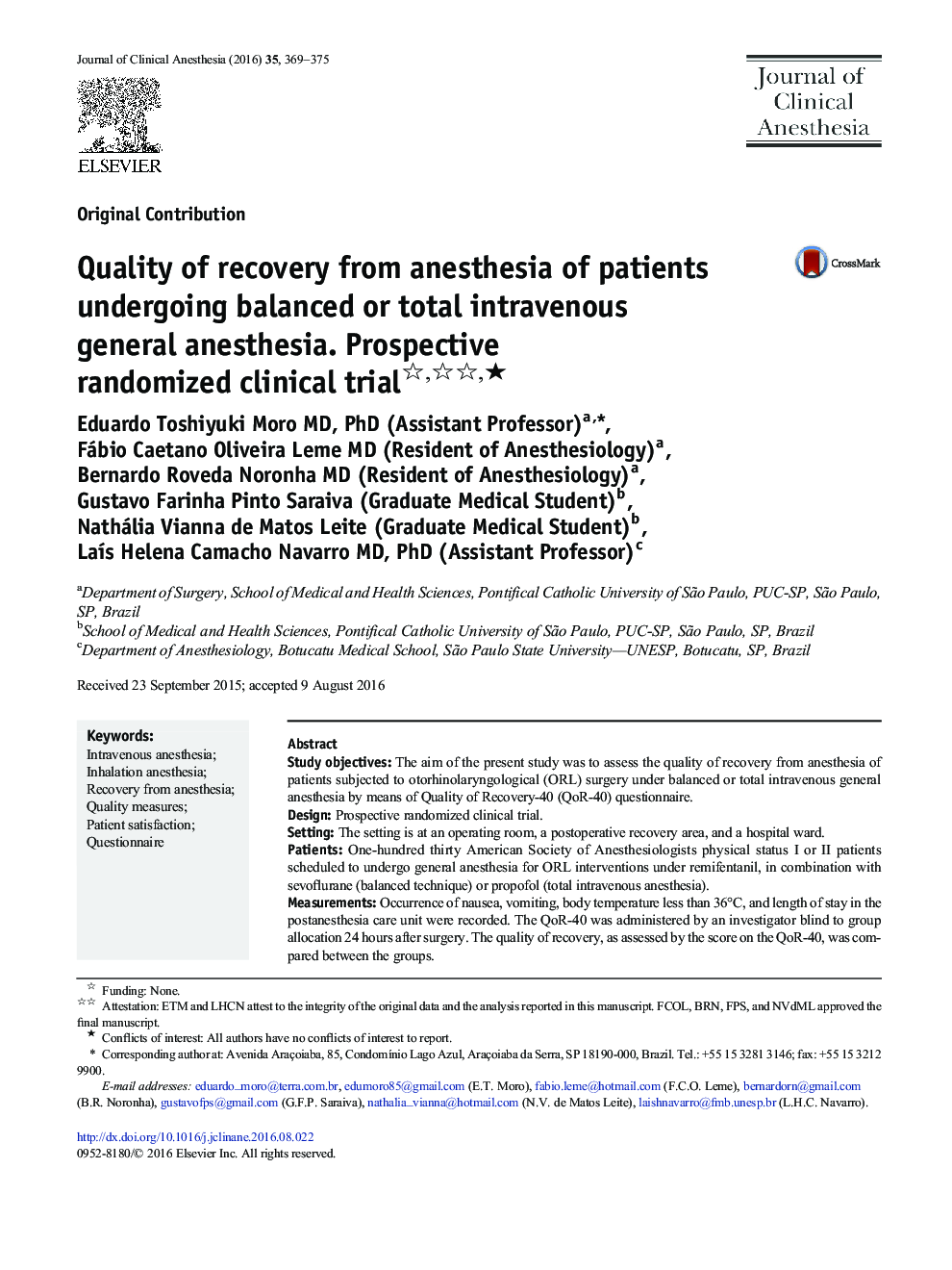| Article ID | Journal | Published Year | Pages | File Type |
|---|---|---|---|---|
| 5884322 | Journal of Clinical Anesthesia | 2016 | 7 Pages |
â¢Both intravenous and inhalation anesthesia exhibit specific individual advantages.â¢We assessed the quality of recovery (QoR-40) from both techniques.â¢Recovery from remifentanil/sevoflurane or remifentanil/propofol was compared.â¢The lack of difference was demonstrated on the total QoR-40 score.
Study objectivesThe aim of the present study was to assess the quality of recovery from anesthesia of patients subjected to otorhinolaryngological (ORL) surgery under balanced or total intravenous general anesthesia by means of Quality of Recovery-40 (QoR-40) questionnaire.DesignProspective randomized clinical trial.SettingThe setting is at an operating room, a postoperative recovery area, and a hospital ward.PatientsOne-hundred thirty American Society of Anesthesiologists physical status I or II patients scheduled to undergo general anesthesia for ORL interventions under remifentanil, in combination with sevoflurane (balanced technique) or propofol (total intravenous anesthesia).MeasurementsOccurrence of nausea, vomiting, body temperature less than 36°C, and length of stay in the postanesthesia care unit were recorded. The QoR-40 was administered by an investigator blind to group allocation 24 hours after surgery. The quality of recovery, as assessed by the score on the QoR-40, was compared between the groups.Main resultsThere is no difference regarding the QoR-40 score among intravenous and inhalation anesthesia groups (190.5 vs 189.5, respectively; P = .33). Similarly, among the 5 dimensions of the QoR-40, the scores were comparable between the groups. Incidence of hypothermia (P = .58), nauseas or vomits (P = .39), and length of surgery (P = .16) were similar among groups. The evaluation of pain intensity (P = .80) and dose of morphine use in the postanesthesia care unit (P = .4) was also comparable between groups.ConclusionsThe quality of recovery from anesthesia assessed based on the patients' perception did not differ between the ones subjected to either inhalation or intravenous general anesthesia for ORL surgery based on QoR-40 questionnaire assessment.
